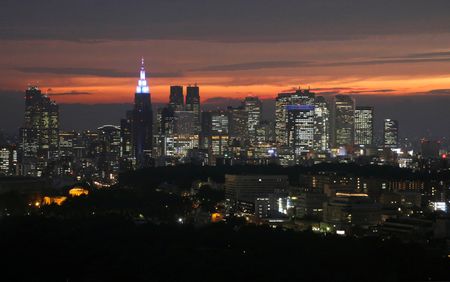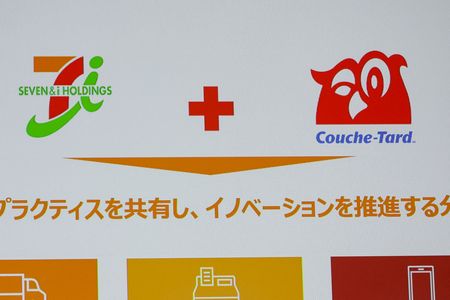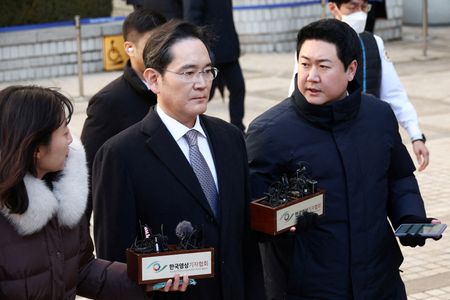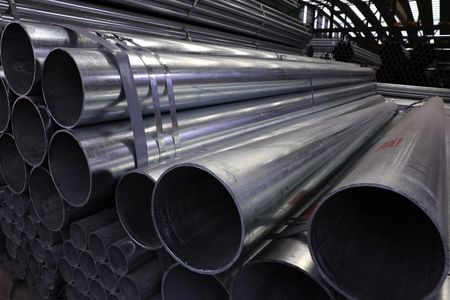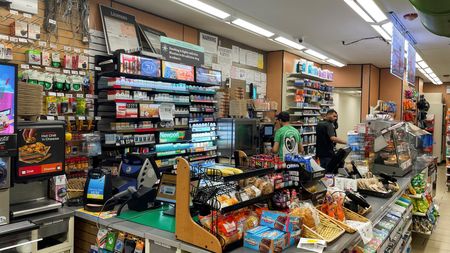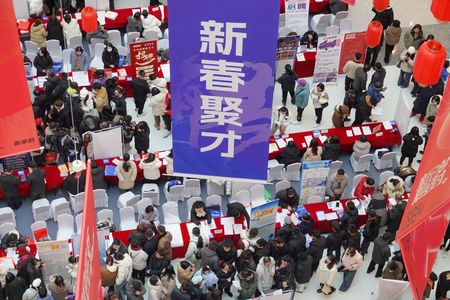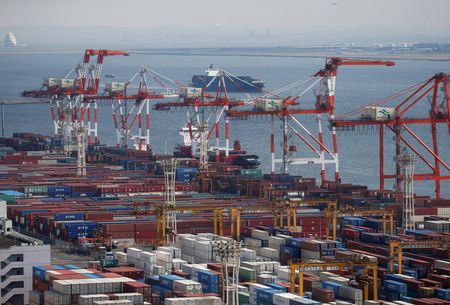By Kiyoshi Takenaka
TOKYO (Reuters) -More than two-thirds of Japanese firms believe the government should compile an extra budget later this year to mitigate the impact of U.S. President Donald Trump’s new tariffs and rising prices, a Reuters survey showed on Thursday.
Trump informed Japanese Prime Minister Shigeru Ishiba last week of a 25% tariff on Japanese imports from August 1, though he hinted there was room for negotiations.
On car imports, the Trump administration has already imposed a new 25% tariff, making the total auto tariff rate 27.5%, a matter of particular concern for Japan, which counts the auto industry as the main pillar of its economy.
About 71% of respondents to Reuters’ survey said a supplementary budget should be drafted following this weekend’s national elections, where Ishiba will be fighting to keep his coalition’s upper house majority.
“Given Trump tariffs, full-blown economic measures are necessary,” a manager at a wholesaler wrote in the survey.
Japan has compiled a supplementary budget every year in recent years to fight the COVID-19 pandemic, to help the public cope with rising prices and to fund other government initiatives, with last year’s totalling about 14 trillion yen ($94.05 billion).
But this year, any extra government expenses are bound to come under heightened scrutiny, with long-term bond yields rising sharply on concerns about the nation’s fiscal health.
Corporate Japan favours stimulus measures such as deregulation, sales tax reductions, and subsidies for companies and households, the survey showed.
Ishiba has proposed cash handouts to help households cope with rising prices, while opposition parties are campaigning to cut or abolish the sales tax.
Regarding financing for stimulus, only 14% supported issuing government bonds, while 38% advocated for cuts elsewhere and 36% proposed using surplus tax revenue.
The survey was conducted by Nikkei Research for Reuters between July 2 and July 11. Nikkei Research reached out to 497 companies and 241 responded on condition of anonymity.
COSTS AND BENEFITS OF LISTING
Opinions were sought on the merits of a stock market listing. While 54% of respondents said the upside of being publicly traded outweighed the downside, 25% found the pros and cons balanced, and 20% said the disadvantages exceeded the benefits.
The Tokyo Stock Exchange in 2023 urged listed firms to focus on their share prices and engage actively with investors, prompting a wave of share buybacks that bolstered the market but raised administrative costs.
“Levels of requirements for listed firms, including disclosure, are getting higher each year…costs of staying listed are getting bigger and cost-effectiveness (of being listed) is becoming less palpable,” an official at a machinery maker said.
Among specific benefits of being listed, 80% of respondents highlighted the establishment of public trust, 70% cited competitive advantage in recruitment, and 45% pointed to easier capital raising.
On executive remuneration, 60% of respondents said compensation should be raised, while 34% said current levels were sufficient.
“There is a gap between the global standard (and Japanese levels), and that is making acquiring talent difficult,” a manager at an electronics manufacturer said.
The median annual compensation for presidents or CEOs at top Japanese companies is 190 million yen, just 6% of the earnings of U.S. counterparts, according to data compiled last month by Deloitte Tohmatsu Group.
($1 = 148.8600 yen)
(Reporting by Kiyoshi Takenaka; Editing by Jacqueline Wong)

